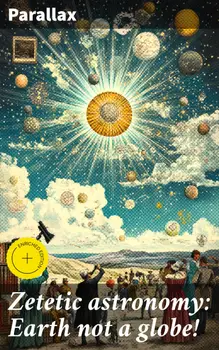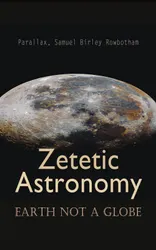In "Zetetic Astronomy: Earth Not a Globe!", Parallax employs an argumentative style that challenges the prevailing heliocentric models of his time, positioning the Earth as a flat plane rather than a globe. Through meticulous observation and an array of rhetorical techniques, the author scrutinizes the science of astronomy, proposing a zetetic method 'Äî one rooted in empirical evidence derived from personal observation. His treatise engages with contemporary debates in 19th-century science, reflecting a burgeoning skepticism toward established scientific norms and the increasing accessibility of scientific literature to the layperson. Parallax, an elusive figure often associated with the early flat Earth movement, channels the intellectual currents of his era that sought to democratize knowledge. His background in skeptical inquiry likely influenced this work, as did the profound cultural shifts characterized by the questioning of authority in realms of thought, including religion and science. The book not only critiques astronomical conventions but also serves as a precursor to later dissident scientific perspectives, empowering readers to trust their observations over prevailing theories. This provocative text is essential reading for those interested in the history of scientific thought, dissenting philosophies, and the nature of empirical inquiry. Parallax's arguments invite readers to engage critically with the foundations of astronomical science, making it a valuable addition to the libraries of scholars, students, and anyone intrigued by the intersection of science and ideology.

Lue ja kuuntele ilmaiseksi 42 päivää!
Peruuta milloin vain
Kokeile nyt ilmaiseksi